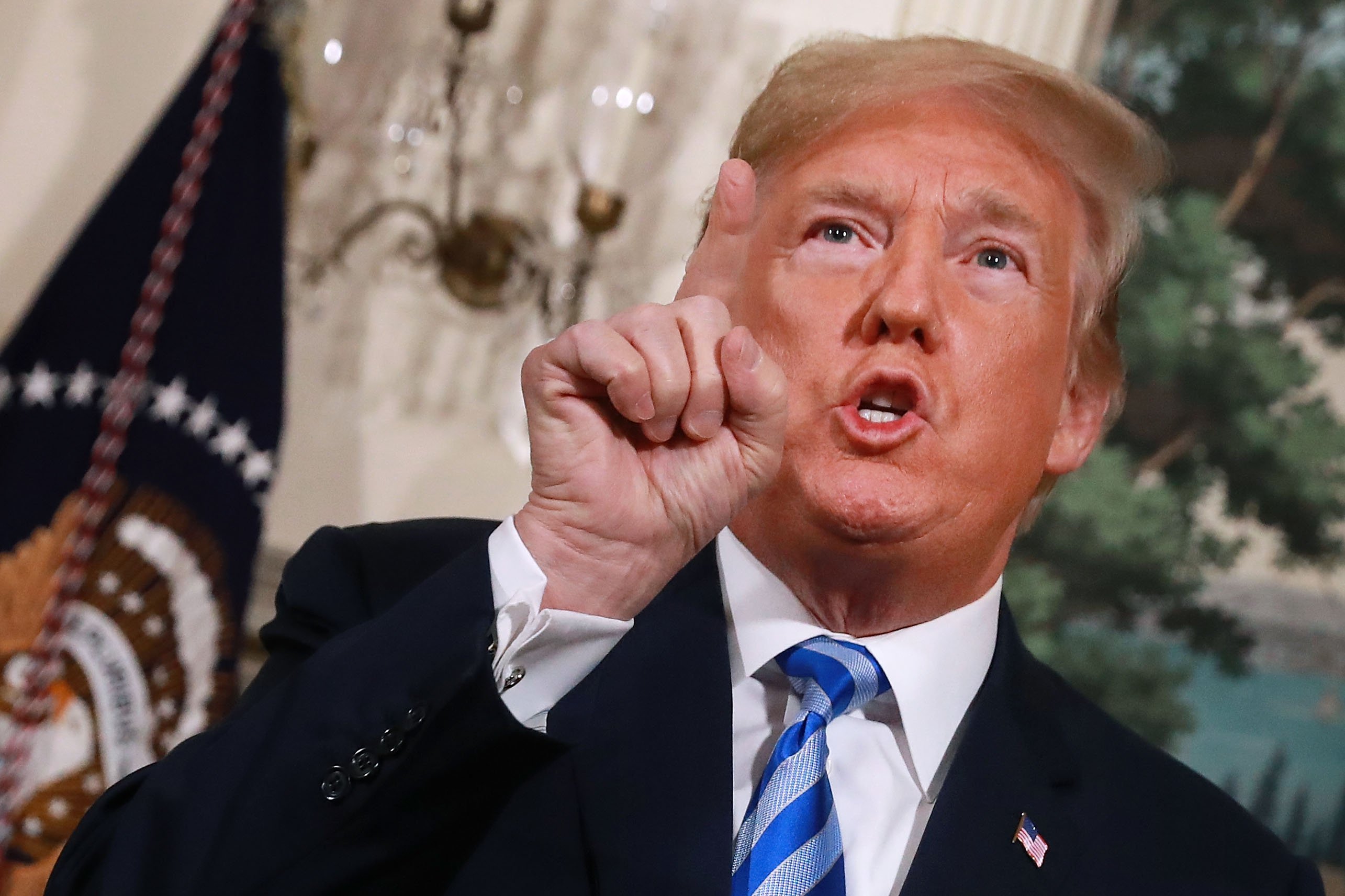President Donald Trump has on Friday, August 23, 2019, ordered all US companies with operations in China to begin looking for alternatives in response to retaliatory tariffs from Beijing.
Trump said in a series of tweets that he will respond in hours to an announcement Friday (local time) that China was retaliating to US tariffs with a slate of its own protective measures.
Trump is also ordering Fed Ex, Amazon, UPS and the US Postal Service to begin searching for fentanyl in all packages from China.
“Our country has lost, stupidly, trillions of dollars with China over many years,” President Trump wrote.
“They have stolen our intellectual property at a rate of hundreds of billions of dollars a year, & they want to continue. I won’t let that happen!
“Our great American companies are hereby ordered to immediately start looking for an alternative to China.”
Our Country has lost, stupidly, Trillions of Dollars with China over many years. They have stolen our Intellectual Property at a rate of Hundreds of Billions of Dollars a year, & they want to continue. I won’t let that happen! We don’t need China and, frankly, would be far….
— Donald J. Trump (@realDonaldTrump) August 23, 2019
….better off without them. The vast amounts of money made and stolen by China from the United States, year after year, for decades, will and must STOP. Our great American companies are hereby ordered to immediately start looking for an alternative to China, including bringing..
— Donald J. Trump (@realDonaldTrump) August 23, 2019
….your companies HOME and making your products in the USA. I will be responding to China’s Tariffs this afternoon. This is a GREAT opportunity for the United States. Also, I am ordering all carriers, including Fed Ex, Amazon, UPS and the Post Office, to SEARCH FOR & REFUSE,….
— Donald J. Trump (@realDonaldTrump) August 23, 2019
Earlier, China announced tariff hikes on US$75 (A$111) billion of US products in retaliation for President Donald Trump’s latest planned increase, deepening a conflict over trade and technology that threatens to tip a weakening global economy into recession.
China also will increase import duties on US-made autos and auto parts, the Finance Ministry announced.
The announcement comes as leaders of the Group of 7 major economies prepare to meet in France this weekend.
Tariffs of 10 percent and five percent will take effect on two batches of goods on September 1 and December 15, the ministry said in a statement.
It gave no details of what goods would be affected but the timing matches Mr Trump’s planned duty hikes.
Washington is pressing Beijing to narrow its trade surplus and roll back plans for government-led creation of global competitors in robotics, electric cars and other technology industries.
The spiralling conflict has battered exporters on both sides and fueled concern it might drag down weakening global economic growth.
Peter Navarro, who advises Mr Trump on trade policy, tried to downplay the impact of Chinese tariff hikes. He said they were “well anticipated” and would only strengthen Mr Trump’s resolve.
China’s government appealed to Mr Trump this week to compromise in order to reach a settlement.
That came after Mr Trump warned that the American public might need to endure economic pain in order to achieve long-term results.
The United States, Europe, Japan and other trading partners say Beijing’s development plans violate its market-opening commitments and are based on stealing or pressuring foreign companies to hand over technology.
Some American officials worry they might erode US industrial leadership.
Chinese leaders have offered to alter details but are resisting giving up a development strategy they see as a path to prosperity and global influence.
The talks are deadlocked over how to enforce any deal. China insists Mr Trump’s punitive tariffs have to be lifted as soon as an agreement takes effect.
Washington says at least some have to stay to ensure Beijing carries out any promises it makes.
Mr Trump announced plans to raise tariffs September 1 on US$300 billion of Chinese products after talks broke down in May. Increases on some goods were postponed to December 15, 2019.
Trump escalated “trade frictions” and is “seriously threatening the multilateral trading system,” the Finance Ministry said.
“China was forced to take countermeasures.”
Beijing announced that increase last year but suspended it after Mr Trump and his Chinese counterpart, President Xi Jinping, agreed at a meeting in December in Argentina to put off further trade action while they negotiated.
Trump and Mr Xi agreed in June to resume negotiations. But talks in Shanghai in July ended with no indication of progress.
Negotiators talked by phone this month and are due to meet again in Washington next month.
BMW, Tesla, Ford and Mercedes Benz are likely to be the hardest hit by the Chinese auto tariffs.
In 2018, BMW exported about 87,000 luxury SUVs to China from a plant near Spartanburg, South Carolina. It exports more vehicles to China than any other US auto plant.
Together, Ford, BMW, Mercedes and others export about 250,000 vehicles to China from the US each year, according to the Center for Automotive Research, a think tank in Ann Arbor, Michigan. Most of them are luxury cars and SUVs with higher profit margins that can cover higher US wages.
via AP







